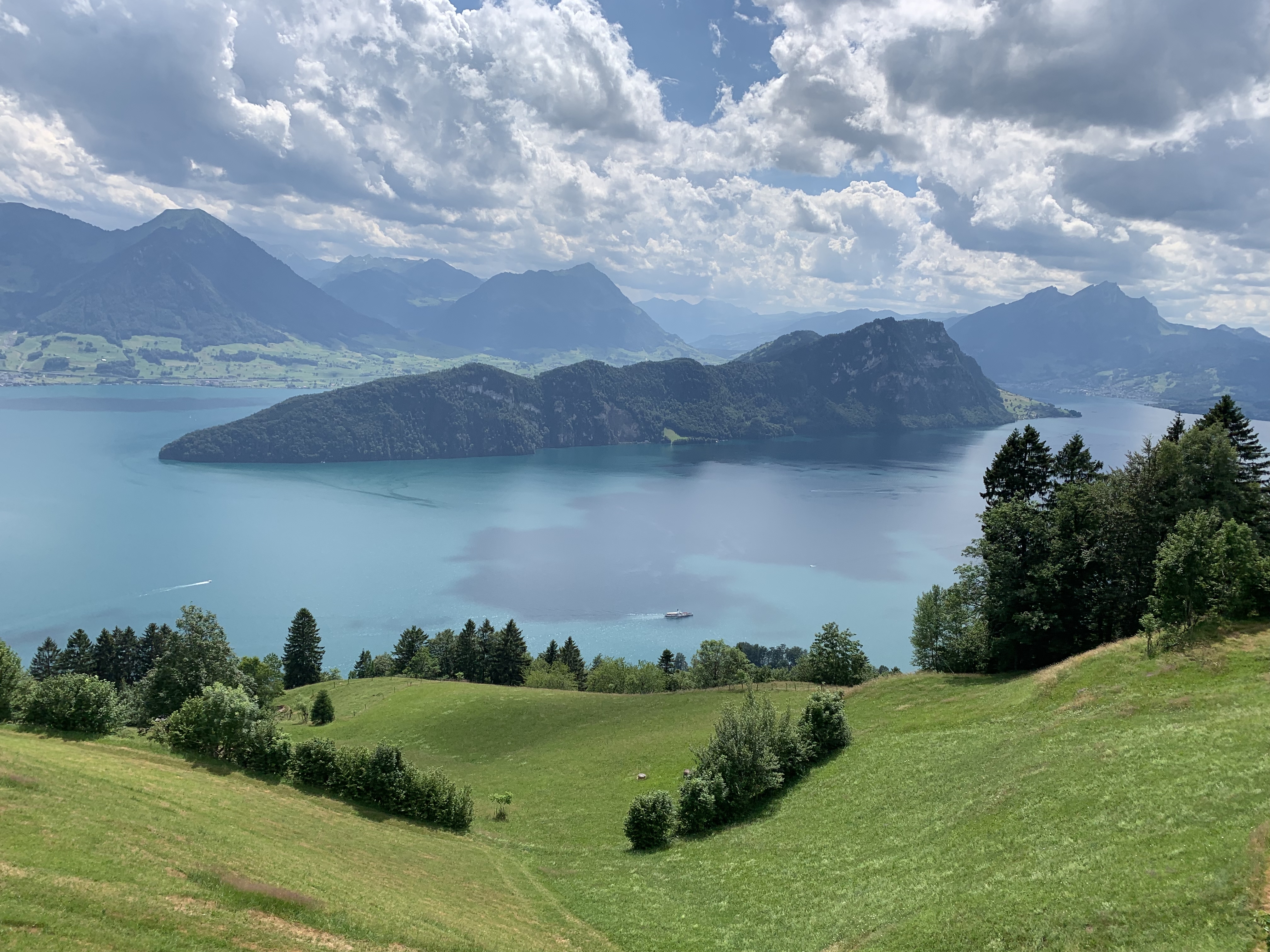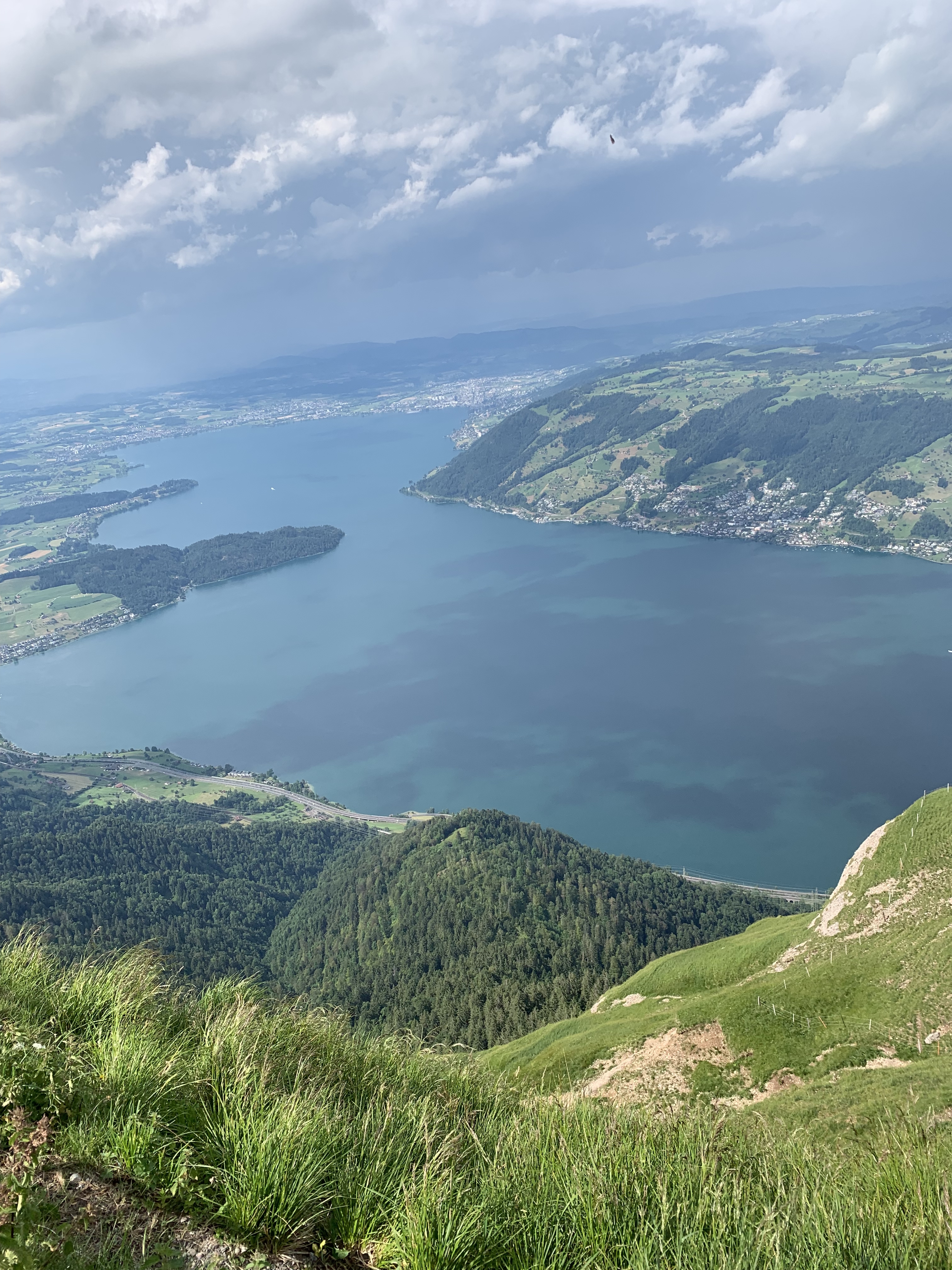Cooking in Germany
Oct. 21st, 2019 09:03 amWe have more of my journal from Germany last July:
COOKING WITH FRIENDS
As I’ve occasionally (only occasionally) mentioned in this journal, I enjoy cooking. When Christina and her then-boyfriend (now fiancé) Timo stayed with us during the American end of the exchange, it turned out Christina was an avid cook as well, and we shared dinner-making chores, teaching other different recipes from our respective countries. [Ed., Christina and Timo are now married. Yay! It's been wonderful seeing their relationship progress from dating to engaged to married.]
Now that I’m in Germany, Christina invited me over to cook together at her and Timo’s place, and I avidly accepted.
But first I had to get there.
Our plan was simple. I’d hop the train for their apartment and be there around 6:00. Timo gets home from work at about 7:00, so we’d have time to hit the grocery store and get supper going before he arrived.
None of us counted on a very sad stranger.
A woman whose name wasn’t released to the press was apparently suffering from deep depression, because she jumped from a bridge over a set of tracks and died immediately. An entire section of the railway shut down so the authorities could handle the situation.
At the time, I knew nothing about this. I only knew that the train stopped at one station and stayed there. Eventually, the conductor announced we all had to disembark due to a problem on the tracks.
Grumbling and muttering, all the passengers left the train. I was barely halfway to my destination and had no idea how to get there. I texted Christina to update her, and she offered to come get me.
I waited patiently. In America, I’m generally an impatient waiter. Hey, I’m a busy guy and every moment I spend waiting is wasted, right? But in Europe, I turn into a patient waiter. I’m perfectly content to examine sewer gratings or count subway bricks. Then I get back to America, and I’m impatient again.
At last Christina arrived. We’d already run into each other several times at school, but we still hugged in greeting, and it was a joy to see her again. Still, we were considerably behind on our schedule. I had planned to make Phony Lasagna, a sort-of lasagna casserole that’s a family favorite, but it’s a 90-minute project at least. Christina and I headed into a grocery store to discuss the matter.
Another switch for me: at home, I loathe grocery shopping. I hate everything about it, from planning the menu to making the list to fighting the crowd to putting groceries away at home. But in Germany, grocery shopping becomes fun. The store is full of interesting and unfamiliar products, or ways to present products. I scamper around the store like Rikki Tikki Tavi on speed, examining everything in chef mode. The milk has a different percentage of fat than in America. The variety of cheese is much wider. Check out these odd vegetable combinations in the canned section. And CHOCOLATE!
After some discussion, Christina and I decided to make chili. We selected ingredients—yes, we put meat in ours—and I double-checked with her for a spice list. She had everything we needed in that category already. She suggested putting corn in the chili, which isn’t normally an ingredient for me, but I agreed to it, and why not?
Just as we were leaving, Timo called. He was stuck in the same shutdown and was, in fact, at the same station I had been stranded at half an hour ago. However, the transportation system was sending a series of special buses to route people around the problem area, so no need to come get him.
Since Christina had taught me some German recipes back home, it was my turn to teach her my chili recipe. My secret ingredient is a big dash of curry with a fair amount of pepper. Christina worked on a custard dessert with a chocolate center. We had a great time, cooking and chatting and catching up. (I got to see her wedding dress, which Timo, of course, hadn’t seen at all.)
At last Timo arrived. He had a deep suntan, to my surprise—last fall he’d been very fair. More hugs and happy chatter! A lot of it was about their upcoming wedding, which is taking place in a castle, and their honeymoon in Greece.
The chili finally finished. I served it with a cheese plate and some interesting spiced crackers Christina found at the store. It was all delicious. Christina and Timo were enthusiastic. The chocolate/custard dessert was a perfect sweet end after the spicy chili.
We talked quite a lot and killed a bottle Diet Coke among us. (Wine? Pff!) They actually had ice (!!!), and I got my caffeine as cold as I like it.
In the end, I had to get back “home,” and Timo offered to drive me so we could talk a little more, too, and that was very fine. It was a wonderful evening of cooking with friends, and exactly what an exchange is supposed to be about.
COOKING FOR FRIENDS
Since I’m staying with JK and AK and they feed me regularly, I felt I should cook for them at least once. I thought I’d make for them something fun and new. In this case, my weirdo combination of cordon bleu and chicken Kiev.
“I will need to be a little rude,” I joked, “and rifle your kitchen to see what equipment you have.”
This also started with a trip to the grocery store and inspired more Rikkti Tikki Tavi scampering about, this time assembling bread crumbs and chicken breasts and cucumbers and corn (which I couldn’t find frozen; only canned, for some reason). Earlier that day, I had already visited a street farmer’s market and picked up potatoes.
In the kitchen, I set to work. It was interesting and fun to use someone else’s kitchen to cook in. AK got home from work in the middle of it and asked when supper would be ready. When I told him it would be about half an hour, he looked a bit surprised, but AK does most of the cooking in the household, and he often doesn’t get home from work until seven or later, so they’re used to eating at eight or even nine—quite normal in Germany, but a little startling to Americans.
I discovered the chicken breasts (pre-packaged) weren’t in large pieces as they usually come in America, but were a lot of much smaller fillets. This only stymied me for a moment—I decided on the spot to make a whole bunch of smaller servings than fewer large ones.
I oiled the chicken fillets with sunflower oil and rolled them around cheese and ham, then rolled =that= in breadcrumbs. They went into the oven (carefully checked for Celsius temperature). After that, I boiled and mashed the potatoes (their set of beaters caused me some consternation, but I got it sorted out) and made Ukrainian salad out of cucumbers, sunflower oil, and salt, then heated the corn.
Everything came out deliciously, and AK and JK were very impressed. It was fun!


